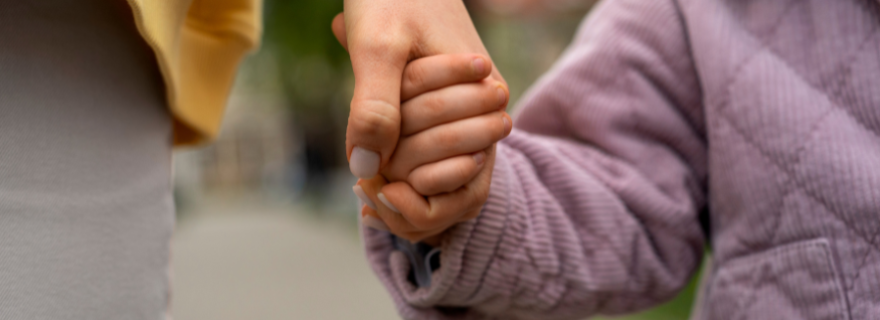Exploring the boundaries of empathy. Lessons from a crowded train
Empathy drives prosocial behaviour… in the lab, anyway, with no other people involved. In real-life scenarios, however, when we are exposed to the behaviour of others, empathy alone is often not enough.
The train was crowded. It was very difficult to navigate through the carriages full of passengers with my 3-year-old niece in my arms. She was feeling tired and sleepy. It was 8 o’clock in the evening, and she would usually be asleep. But due to many delays and maintenance works on the railways, we were still stuck on the train on our way home.
As we walked through crowded carriages, many passengers glanced our way, only to quickly avert their gaze to their mobile devices. Appearing deeply engrossed in your phone helps you avoid eye contact and being approached to vacate a spot for a weary child. Many looked at us with pity and understanding in their eyes, so I was aware that they did want to help. Yet for the next 60 minutes, my little niece and I were left standing in a crowded space between the carriages.
I felt confused. Texts from classical social psychology texts were echoing in my head: Humans exhibit an exceptional level of prosocial behaviour, extending help to others, even at some cost to themselves. When participants are asked to share their resources with a stranger in the lab, they commonly allocate at least one third of their endowment. Prosocial behaviour is specifically observed towards others who are in distress. In one study, participants were willing to take over unpleasant electric shocks in order to spare a stranger from this unpleasant experience. Moreover, even less deliberate cognitive processes, such as attention and memory, improve to alleviate distress in others rather than in the self. Why did nobody offer us their place in the train?
Prosocial behaviour in the absence of empathy
Helping is inherently costly. In helping others, we sacrifice our time, money, or a comfortable seat in the crowded train. It is, therefore, a good thing that evolution has endowed humans with empathy to counter our innate selfish tendencies. Empathy allows us to quickly and automatically relate to the state of another person. The more empathy we experience for another person, the more inclined we are to alleviate their distress.
But is it that simple? ‘Don’t forget the group!’ reads the title of an article about empathy and helping behaviour. As predicted, the more empathy participants reported feeling towards the homeless, the more likely they were to report helping them, e.g., through direct donations. Yet, some participants with low empathy scores demonstrated the same donation frequency as individuals with higher empathy. This result was explained by social norms in the participants’ close circle, including their family and friends. In the absence of empathic feelings, strong norms of helping others in need ultimately drive prosocial behaviour.
Selfish behaviour in the presence of empathy
But might the reverse also be true? I.e., may the absence of strong prosocial norms reduce empathy-driven decisions to help? In a study by Lindstroom et al (2018), participants observed decisions of others in a group as these others acted either pro-socially (i.e., shared their resources to benefit the whole group), or selfishly (i.e., kept their resources for themselves). Surprisingly, selfish behaviour was judged as more moral and less deserving of punishment when it was more common in the group. Although the study did not explicitly measure empathy or helping behaviour, it demonstrates that the actions of others implicitly shape our own decisions and our perception of what is the right thing to do in a given situation. Our decisions to help are often shaped by the behaviour of those around us, a phenomenon commonly referred to as the bystander effect. Individuals with high levels of empathy may feel inclined to help others, but the extent to which they act on their feeling for the other is largely influenced by the actions of third parties. To put it differently: the collective implicitly grants us the freedom to act selfishly.
Humans are social species. We rely on social interactions for our own well-being, but also to ensure the well-being of those around us. However, psychologists’ understanding of empathy and its role in prosocial behaviour comes from laboratory experiments where individuals make decisions in a social vacuum. Would participants take over those shocks to spare a stranger if they knew that the other ten participants before them had decided not to help? I suggest that they would not. The commonness of selfish behaviour can influence our own actions and likely override our empathic inclinations. If this was not the case, we would help refugees more. We would eat less meat, knowing the distressing conditions that most farmed animals live in. And we would more readily offer our seat to a tired little girl on a crowded train.





